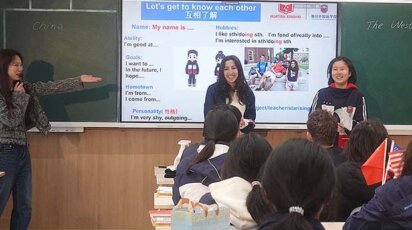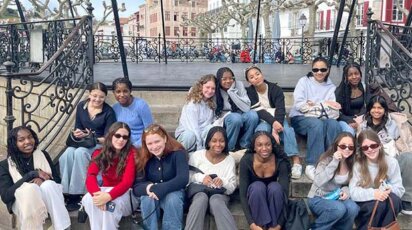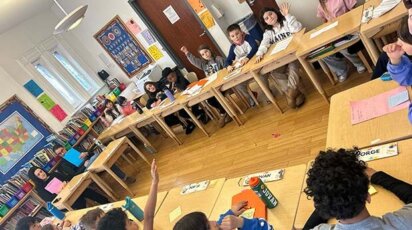News
(This is a condensed version of a profile written for the upcoming Fall 2022 issue of Poly’s magazine The Blue & The Gray.)
“I always say that some may have learned about the Federalist Papers via Lin-Manuel Miranda, but I knew about them because of Susan Beiles.”
Stellene Volandes ‘89
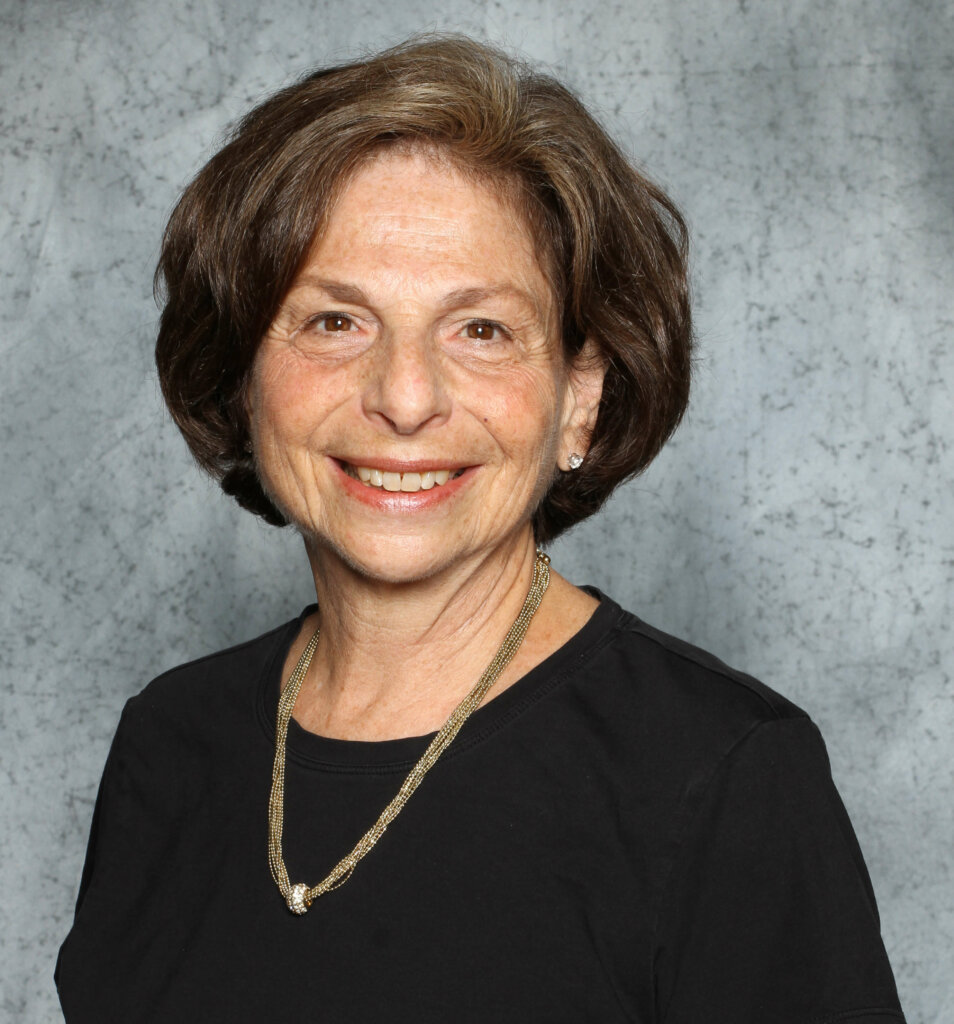
Without question, Susan Beiles P’88, ‘90, ‘95 has had an enduring impact on countless students and colleagues over the 43 years she taught history at Poly. In the coming year, she will chart a new course at our school as a writing specialist.
“I still have my notebook from Mrs. Beiles’ AP U.S. History class,” said Stellene Volandes ‘89, Editor-in-Chief of Town & Country, “and I’m sure I’m not alone. I refer to it whenever I am about to write anything remotely related. I always say that some may have learned about the Federalist Papers via Lin-Manuel Miranda, but I knew about them because of Susan Beiles.”
Susan, who grew up on Staten Island, came to Poly in January 1979 for what was supposed to be a temporary position teaching AP U.S. History. At the time, she and her husband, Arnie, were raising three young daughters. Poly had gone coed only two years earlier. Susan became one of a few female teachers in the Upper School and a role model to the dozen or so girls.
Poly became a “home for the whole family.” Susan’s eldest daughter came to Poly in fifth grade in 1980, followed by her sisters. Her youngest daughter, Laura Coppola ’95, P’29, ’35, is Charles and Valerie Diker Chair of Visual Arts. Four granddaughters now attend Poly.
Poly has been Susan’s “professional home” all these years because it was not only a “wonderful opportunity,” but also because she felt respected, in high regard, and that her voice was heard.
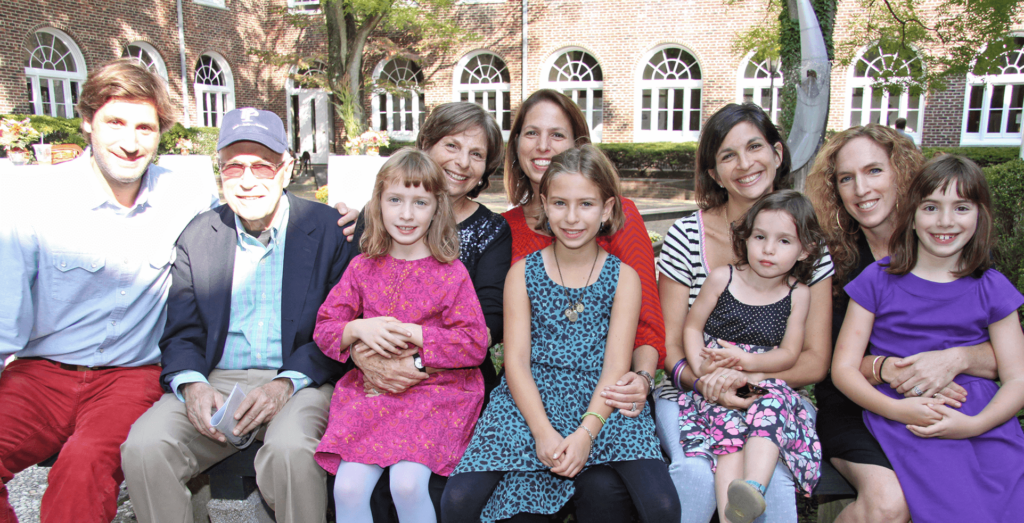
Over the years, in addition to AP U.S. History, Susan taught U.S. History, World History, 20th-Century History, and an elective in sociology. In the former dean system, she became ninth grade dean. She also served as Dean of Faculty. But, AP U.S. History was her great love.
“I am a writer by profession,” Volandes said, “and I learned how to do it in that class. Mrs. Beiles taught me how to craft an argument—whether that be on Manifest Destiny or the Hope Diamond—how to incorporate expert opinions and alternate ideas, and to look at any question and think about what they were really asking. And the DBQs!” DBQs, Susan explained, are document-based questions that require a student to use historical documents in responding to AP exam questions.
Developing the Skills of a Historian
“History isn’t static,” Susan stresses. “There can be new interpretations, new information that will change the ways we look at the past.”
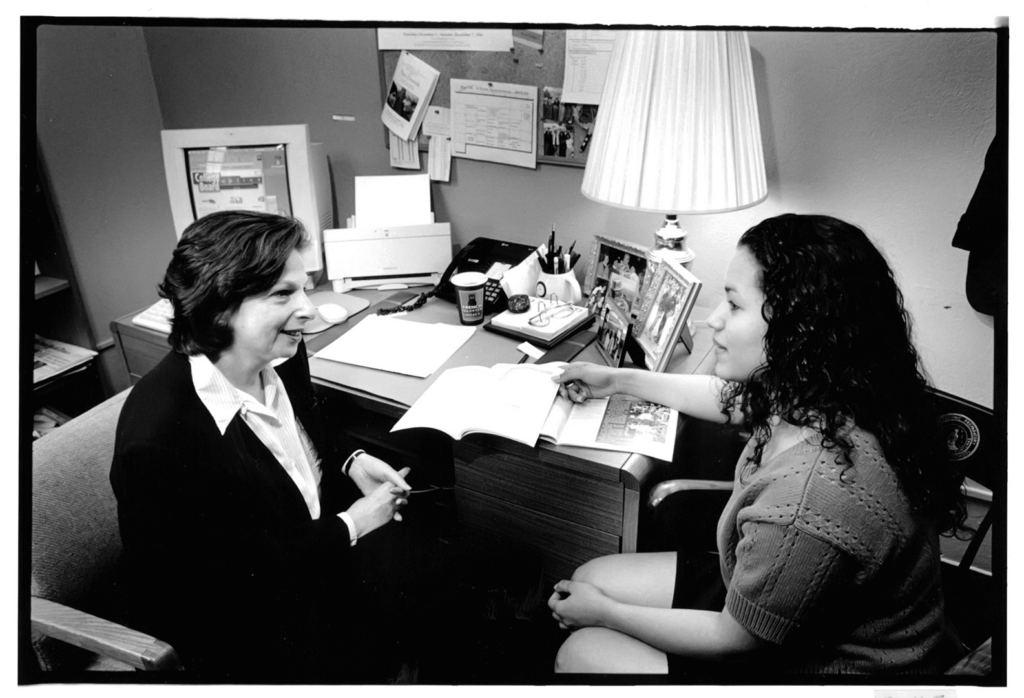
Susan’s goal was to “help students treasure the life of the mind” and to develop the skills of a historian. “You have to use the documents to support or refute an argument,” she explained. Students learned to read critically, understanding the personal views or bias of an author. Her students had to have evidence to support a viewpoint. They considered, “What has the author not spoken about?” “What questions would you ask the author?” “What is presented and what is not presented.”
“But not only was that [Susan’s class] my absolute favorite class at Poly because of her amazing ability to teach and make it compelling and fun, but also because she really brought me out of my shell in the classroom.”
Madeleine Perez ’93
“Here was this brilliant, strong, no nonsense woman who seemed to know literally everything,” Madeleine Perez ’93 recalls. “But not only was that my absolute favorite class at Poly because of her amazing ability to teach and make it compelling and fun, but also because she really brought me out of my shell in the classroom.” Perez added, “Thanks to her, I learned about Wesleyan. If it wasn’t for her and her faith in me, I wouldn’t have landed at such a great university.”
“Earning a spot in her AP class was a challenge,” said Rebecca Goldfarb Terry ’15, “keeping it was even harder. Mrs. Beiles always demanded the best from her students. She expected us to excel on each test and paper, remain present in class, and be responsible for the rigorous workload. However, the dedication that she asked from us was always reciprocated through engaging lectures, an open door, and a genuine love of history and teaching. She set high expectations for each of us, and this always made me want to do my best in her class.”
“Everyone knew Ms. Beiles for the high standards to which she held her students,” said Rolanda Evelyn ’12. “This I can confirm is true, but in the end, it’s all for the best of her students. I went off to college at UPenn and not only was I ready for the challenge because of the diligence that Poly taught me, but also because of the work ethic Ms. Beiles instilled in me.”
“My grandmother has always encouraged my intellectual curiosity even when I didn’t know where it would take me.”
June Dorsch ’23
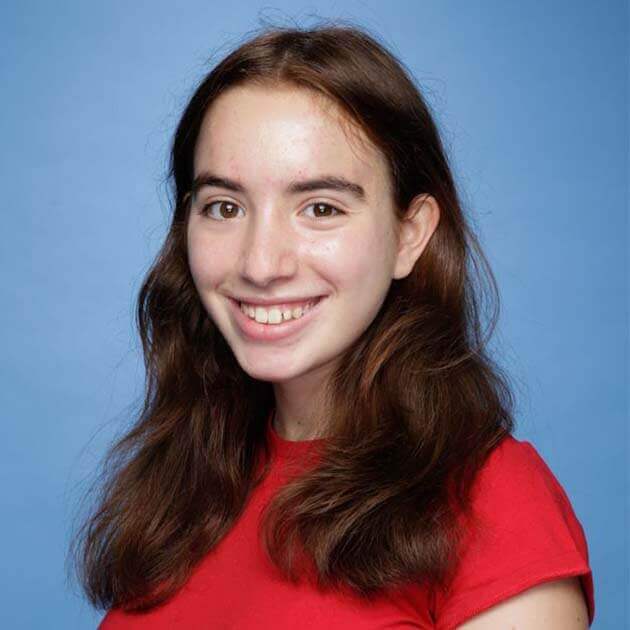
Susan’s granddaughter, June Dorsch ’23, is a budding historian. This year, Dorsch placed first in the NY State History Day competition and advanced to the national competition for a paper about the sterilization of indigenous women. “For as long as I can remember,” Dorsch said, “my grandmother has always encouraged my intellectual curiosity even when I didn’t know where it would take me. She would tell me about our family history, forward me online newsletters from places like the Gilder Lehrman Institute about the history of inaugurations or American xenophobia, and she would give me notebooks to encourage my writing.”
A Mentor to Her Colleagues
Among her favorite memories at Poly, Susan said, were the “times of celebration” such as Teaching & Service and 25 Years of Teaching celebrations. In 2014, her whole family came to Homecoming as she was honored with the Spirit Award.
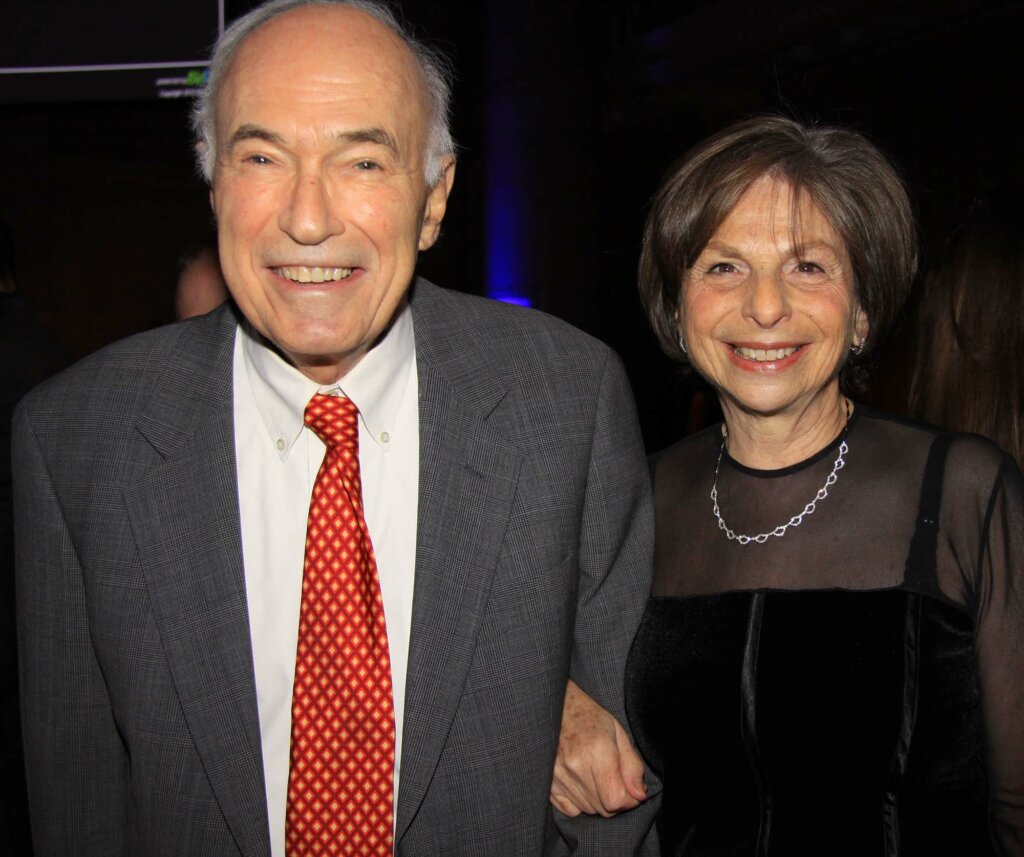
When her husband, Arnie, passed away in February 2021, Susan was extremely touched by the beautiful notes she received from her students. She holds these very close and says it “symbolizes the best in us as a community.” “I met Susan when I applied to become Chair of Poly’s History Department and quickly discovered why students found her both formidable and inspiring,” said Michal Hershkovitz, P’16, ’18, Assistant Head of School, Academics. “Susan served as my first and most important mentor; she guided me, as she did her students, by setting high standards of excellence and providing sage advice and unwavering support for meeting them. A stalwart friend, she helped me and others become better. Susan was and remains clear-eyed about what she cherishes most about Poly: our warm community, devotion to our students’ intellectual and personal growth, and the unique role we play in ensuring that students leave school with high standards of their own.”
“I met Susan Beiles in 1990, the year I became part of the “Poly Family,” recalls former English teacher Gail Karpf P’06. “Susan introduced herself to me at one of our opening meetings. She let me know that she would be available to answer any questions I had, and that she looked forward to getting to know me.” Over the course of 27 years, Susan and Gail got to know each other well. “In fact,” Karpf said, “I often said that I wanted to be like Susan in years to come: I wanted to be a role model for students, I wanted to become an expert in my craft, and I wanted to be a mentor for future Poly teachers.”
“Teaching is a strange endeavor,” said English teacher John Rankin, “often quite isolating, just the teacher and the students. Susan always reminds us that we have a powerful institution with a credible history and tradition that is far more meaningful than most of what is out there. And that in and of itself forms a community of like thinkers. We cannot be everything to everyone, but we can be who we are and deliver on the promise to prepare for a life of conviction and purpose….”
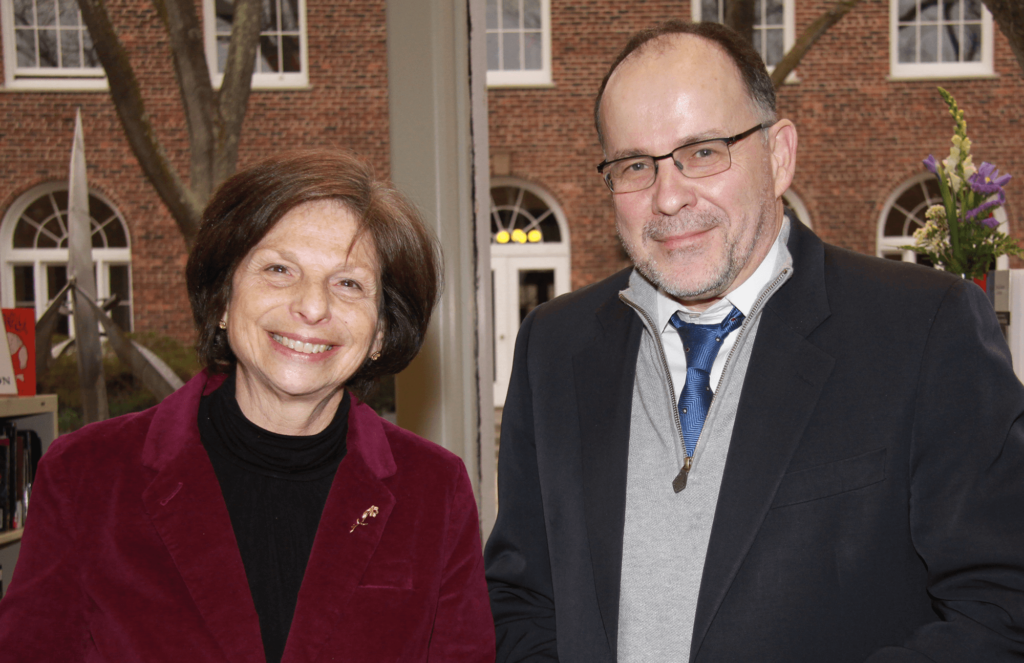
The Future
“I recently saw Ms. Beiles at Reunion and gave her a huge hug,” said Evelyn. “It brought such a smile to my face to know that Poly students today have someone like Ms. Beiles on campus, but also, after so many years, to get to thank her for all that she did for high school me.”
When asked what advice she would offer a young colleague, Susan said, “I would urge that they be the best version of themselves that is possible. As a teacher, scholar, hard-working and involved member of the community, they model for their students what excellence looks like. I would—and I tried to—hold students to stretch themselves, too, to high standards, to be the best they can.”

